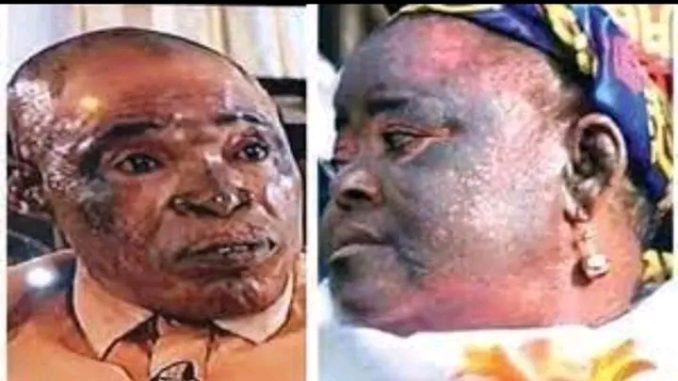The Minister of State for Health and Social Welfare, Dr Iziaq Salako, on Wednesday decried the increasing use of skin-lightening products among Nigerians and Africans.
Salako said despite the well-documented harmful effects, the use of skin-bleaching products like creams, ointments, soap, pills and injections is common among non-white populations throughout the world. Speaking at the high-level segment of the regional awareness-raising workshop on the elimination of lightening cosmetics products in Gabon, he stated that bleaching products is particularly widespread in Africa, especially among women.
In his speech made available to journalists in Abuja, Salako, however, stated that Nigeria is in the process of developing a National Policy on Cosmetics to provide a comprehensive framework for ensuring the safety and quality of cosmetic products.
“I must say that not only are men using SLPs, men also tend to put pressure on women directly or indirectly to lighten their skin, and therefore our campaigns must not exclude the menfolks.
“Nigeria may have been called ‘the world capital of skin bleaching’, or ‘the skin-lightening hothouse of the world,’ potentially due to its recognition as having the highest usage rates of SLPs across the globe put at 77 per cent among Nigerian women by WHO. This rate is the highest in the world, reinforcing the prevalence of a cultural and societal preference for lighter skin tones in the country.
“Skin-whitening products include skin-lightening or whiteners that are widely used among a wide range of demographic groups regardless of age, socio-economic status, or education level,” he said.
He highlighted that other studies and surveys confirm the high prevalence of skin bleaching culture in Nigeria.
“The Federal Ministry of Health and Social Welfare (through the Cosmetics Safety Management Programme) sampled the opinion of manufacturers and regulatory agents on skin lightening agent usage and found that 52 per cent of manufacturers use skin lightening agents in their formulation
“Nigeria Opinion Institute, a leading public opinion polling organisation in Nigeria, providing insights into public opinion and consumer markets found that 64 per cent of Nigerians believe skin bleaching is highly prevalent, with 97 per cent believing it is common among Nigerian women.
“Studies among university students found a prevalence of between 62.4 and 64.9 per cent. The awareness of skin bleaching is high at over 76 per cent with close to 40 per cent believing that it makes one look beautiful and fashionable. High prevalence was influenced by peer pressure and societal perceptions of beauty. There is also a prevalent practice of using toning ( as a replacement) for bleaching and believing wrongly that toning is not harmful or less harmful,” he emphasised.
The expert decried that many of the bleaching products contain harmful substances, such as mercury, hydroquinone, steroids and other heavy metals like arsenic, lead, and cadmium which pose risks of skin damage, organ toxicity and cancer.
He said the high prevalence of skin-whitening product usage in many parts of Africa, including Nigeria highlights the urgent need for targeted public health campaigns, stricter regulatory enforcement, and community-based advocacy to address the practice.
He noted that the Federal Government has been working to promote the use of safe cosmetic products free from hazardous substances.
“Recognising the pervasive use of unsafe cosmetics and the health risks they pose, the Federal Ministry of Health and Social Welfare has taken proactive steps to educate the populace.
“Through its Cosmetics Safety Management Programme, the ministry has carried out sensitisation, training, and advocacy campaigns in the country including at the grassroots level. The approach is being designed to influence behavioural changes by addressing the root causes of skin-lightening product usage and promoting a healthier and more inclusive attitude.
“We have developed the Cosmetic Products (Prohibition of Bleaching Agents) Regulations 2019, which prohibit the use of harmful skin-bleaching agents like mercury and restrict the allowable concentration of hydroquinone to two per cent. The government through the National Agency for Food Drugs Administration and Control ensures that all cosmetic products sold in Nigeria are registered, tested, and certified to meet safety standards.
